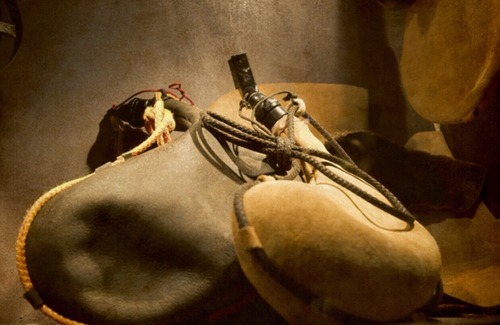Who Knew? The People God Puts in Your Life (Part Three)
 Monday, March 26, 2018 at 07:04AM
Monday, March 26, 2018 at 07:04AM  The Dependent. “Now when Mephibosheth the son of Jonathan, the son of Saul, had come to David, he fell on his face and prostrated himself. Then David said, ‘Mephibosheth?’ And he answered, ‘Here is your servant!’” 2 Samuel 9:6. David owed nothing to the house of Saul, especially considering Saul’s treatment. But God put a desire in David’s heart to do something good for the disabled Mephibosheth, one of Saul’s sons, out of a sense of gratitude.
The Dependent. “Now when Mephibosheth the son of Jonathan, the son of Saul, had come to David, he fell on his face and prostrated himself. Then David said, ‘Mephibosheth?’ And he answered, ‘Here is your servant!’” 2 Samuel 9:6. David owed nothing to the house of Saul, especially considering Saul’s treatment. But God put a desire in David’s heart to do something good for the disabled Mephibosheth, one of Saul’s sons, out of a sense of gratitude.
Never harden your heart against people in need. God places them in your life to test your spirit. Not everyone should get a handout, but some people give us the opportunity to let God’s grace and generosity flow through us. Hebrews 13:16.
The Temptress. “Then it happened one evening that David arose from his bed and walked on the roof of the king’s house. And from the roof he saw a woman bathing, and the woman was very beautiful to behold.” 2 Samuel 11:2. Bathsheba was forbidden fruit for David. He had no right to her. She did not necessarily do anything wrong, but David indulged himself in lustful thinking which led to sin.
There will always be a seductress (or seducer) strategically placed somewhere in your life. You may complain against the unfairness of the situation, you may blame the person by whom the temptation comes, but you are responsible for your own reaction. We know what David did, but we can only piece together the plan of action that he should have taken. (1) You are responsible for your eyes. Psalm 101:2-4. (2) You must take responsibility for your thoughts. Proverbs 23:7. (3) You must initiate your own cleansing. “Therefore, having these promises, beloved, let us cleanse ourselves from all filthiness of the flesh and spirit, perfecting holiness in the fear of God.” 2 Corinthians 7:1
The Victim of Your Sin. “Then David sent to Joab, saying, ‘Send me Uriah the Hittite.’ And Joab sent Uriah to David.” 2 Samuel 11:6. David sent Uriah to the frontlines of battle where he would surely be killed. Thus, he covered up his sin with the added sin of murder. As time passed, David suffered from the knowledge that his own actions destroyed an innocent man. (I Kings 15:5). He wrote Psalm 51 as a response to his sin.
You may have hurt someone in your lifetime by word or deed. Whether or not the person is still living, you know in your own heart what you did. If you can, seek out forgiveness and make it right. If not, ask God to forgive you. While the sin and guilt will be washed away, never forget the propensity in your own life to do wrong. This does two things: (1) It keeps you humble and contrite. (2) It helps you to deal with other sinners more mercifully. “Brethren, if a man is overtaken in any trespass, you who are spiritual restore such a one in a spirit of gentleness, considering yourself lest you also be tempted.” Galatians. 6:1.
Your Great Embarrassment. “After this Absalom the son of David had a lovely sister, whose name was Tamar; and Amnon the son of David loved her.” 2 Samuel 13:1. This is an instance where we find the Bible to be a forthright and objective book. It did not conceal the mortifying fact that David’s own son, Amnon, committed incest with his sister.
Someone will always exist in your life to develop grace and restraint. Be very careful how you disparage others or hold others responsible for their own misfortune. You may have a far greater embarrassment emerge from your life, family or background. For perspective, read the parable of the debtor in Matthew 18:23-35. Many critical and judgmental people engage in destructive diatribes against others because they despise themselves, they seek to exonerate themselves for their own shortcomings, or they want to divert attention from themselves.







